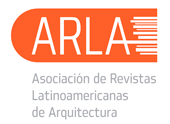Declaración de ética y buenas prácticas editoriales
Declaración de ética
Para la Revista M es fundamental que durante todas las fases que componen el proceso editorial, especialmente las fases de aceptación y publicación de los manuscritos se respeten las normas de buenas prácticas en investigación. Por lo anterior, la revista sigue la Guía del Comité de ética de publicación (COPE): http://publicationethics.org/.
Declaración de privacidad
Así mismo, la Revista M se adhiere a las leyes sobre datos de carácter personal, a saber, la Ley 1266 de 2008 y la Ley 1581 de 2012 del Gobierno Nacional de la República de Colombia.
Al respecto, toda la información suministrada a esta revista, incluyendo los nombres y direcciones de correo-electrónico se usarán exclusivamente para los fines declarados por la publicación y no estarán disponibles para ningún otro propósito u otra persona.
Sobre la publicación de los contenidos
La entidad editora, en este caso, la Universidad Santo Tomás, previa autorización firmada por el autor, queda autorizada para copiar, reproducir, distribuir, publicar, comercializar el texto o artículo objeto de la cesión, por cualquier medio digital, electrónico o reprográfico, conocido, conservando la obligación de respetar en todo caso los derechos morales del autor contenidos en el artículo 30 de la Ley 23 de 1982, la Ley 1450 de 2011 y la Ley 1520 de 2012.
Responsabilidades del equipo editorial
La Revista M cuenta con un editor y un equipo editorial, los cuales garantizan la realización de un proceso editorial transparente que se da en igualdad de condiciones sin privilegiar a ningún autor por su filiación institucional o trayectoria académica. La labor de la revista esta soportada por los comités editorial y científico, quienes cuentan con una importante trayectoria académica y profesional, los cuales no podrán evaluar sus propios artículos dado el caso tal de que actúen como autores dentro de la misma revista.
De igual forma el equipo editorial garantiza la confidencialidad del material puesto a consideración por los autores para su posible publicación. Los resultados de las evaluaciones sólo se comunican a los autores y siempre se conserva el anonimato tanto de autores como de evaluadores.
Por otra parte, el equipo editorial estará atento a identificar y combatir el plagio, así como otras prácticas que incurran en omisión deliberada de reconocimiento a fuentes consultadas, manipulación de información y utilización de contenidos sin autorización, reservándose el derecho de rechazar cualquier material en el que se compruebe este tipo de proceder.
Responsabilidades de los autores
Los autores deberán garantizar la originalidad de sus trabajos y que estos no han sido publicados previamente en otro medio ni enviados paralelamente a evaluación en otras publicaciones. De igual forma, deberán garantizar que todo el material que respalda el texto escrito, como figuras, tablas, cuadros y fotografías cuenta con las autorizaciones respectivas para su publicación y difusión.
Así mismo deberán garantizar que sus artículos son el resultado de procesos investigativos rigurosos; que los autores que figuran en el texto contribuyeron de manera significativa tanto en la investigación como en la escritura del documento, conociendo por tanto el texto final y autorizando su publicación; en caso de que el artículo requiera ajustes deberán tener en cuenta las recomendaciones de los evaluadores y del equipo editorial.
Finalmente, el contenido de cada artículo publicado es responsabilidad exclusiva de sus autores y por lo tanto no compromete a la Universidad Santo Tomás.
Responsabilidades de los evaluadores
Los pares evaluadores deberán comprometerse a informar al equipo editorial si hay conflicto de intereses o cualquier otra situación que pueda ser causante de inhabilidad al momento de evaluar un artículo, para que el editor pueda oportunamente asignar otro par evaluador.
Así mismo, al aceptar la revisión del material encargado deberán garantizar la realización de la evaluación de manera objetiva, imparcial y confidencial, manteniendo de esta forma los criterios establecidos por la revista para la revisión de los artículos. De igual forma deberán entregar su evaluación dentro de los plazos establecidos previamente por el equipo editorial, diligenciando el formato definido para ello, argumentando de manera clara, tanto la calificación final como las sugerencias realizadas con el fin de que tanto el editor como los autores puedan comprender sus comentarios.
Finalmente, en caso tal de identificar elementos de plagio o un alto índice de similitud entre el artículo revisado y otros documentos publicados o revisados deberá informarlo al editor de la revista.






